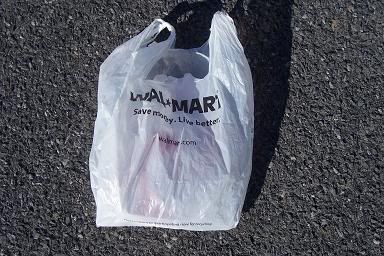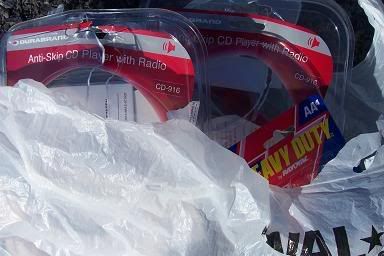”The idea that developing countries should feed themselves is an anachronism from a bygone era. They could better ensure their food security by relying on U.S. agricultural products, which are available in most cases at lower cost.”
So said U.S. Agriculture Secretary John Block back in 1986. If he actually believed that statement, he was a fool. More than likely, though, he was a puppet of Big Ag—that cartel of massive multinational corporations that control global food production and distribution. But, more to the point, Mr. Block was just wrong. Dead wrong.
Here we are, twenty-two years later. Millions of poor people in so-called “developing nations” of the world are facing a crisis of higher food prices and food shortages because of the wicked idea that they should depend on some entity other than themselves for their food security.
According to the U.N.’s World Food Program, at least 34 countries have seen citizen protests in recent months over the high price of food, or the shortage of food. Some protests have turned to riots. People have died. Millions could face starvation or, at best, malnutrition in the years ahead. Yes, Mr. Block was dead wrong.
Few Americans realize that our government, in collusion with internal banking institutions and Big Ag has been undermining the food security of many developing nations in the past few decades.
Don’t misunderstand me—I love my country. But that does not mean I blindly accept that everything self-serving politicians and bureaucrats in government do is good. America is a generous nation in that we lead the world in food aid to those in need. But it appears that with the one hand we give, while, with the other, our government leaders have been working with the destructive supranational forces of Big Ag. We need only look across our southern border for but one of many examples.
Last year Mexicans by the thousands gathered in the streets of Mexico City to protest a sixty percent increase in the price of tortillas. Corn is the primary ingredient in a tortilla. The price of corn had skyrocketed. Sixty percent is substantial. Would you be upset if you were a poor Mexican and your food budget jumped sixty percent? I’ll bet you would. And if you knew the reason why, you’d be even more upset.
It is common knowledge that corn prices in Mexico are high because American corn production is being diverted from food purposes to make biofuel (i.e., ethanol). They tell us it is simply a matter of supply and demand. But there is more to this story that that.
Why is Mexico dependent on U.S. corn anyway? Wasn’t corn first domesticated in Mexico? It sure was. Mexican farmers have been growing corn in Mexico for centuries. In fact, Mexico used to produce pretty much all the corn it needed. Up until the late 1980s Mexico was a corn producing country, not a corn dependent country.
But that has all changed and you should understand what happened. Here’s the story: First, in the 1980s Mexico was in the midst of a debt crisis. The country owed billions to international banks and they were having difficulty paying. So the International Monetary Fund (IMF), World Bank, and U.S. government stepped in to help with a multi-billion dollar bail out plan. But the bailout came with strings attached. Mexican tariffs, which protected Mexican farmers from unfair foreign competition (U.S. imports, primarily), were lowered, and government support programs for the large Mexican farming peasantry were cut back or eliminated. It was a blow to the agrarian culture of Mexico which has, for centuries, supplied the Mexican people with Mexican corn.
But that was only the first blow of a one-two combination. Then came the knockout punch....
I remember watching the 1992 US presidential debate in which Ross Perot made his famous statement about the North American Free Trade Agreement (NAFTA). He said that if NAFTA was passed, there would be a “giant sucking sound” as American manufacturing jobs went to Mexico. He was, figuratively speaking, right.
I always assumed that NAFTA benefited Mexico by providing jobs. But I realize now that NAFTA has not been a good thing for Mexico. What NAFTA did to Mexico was completely eliminate trade barriers to American corn. That allowed inexpensive, U.S.-taxpayer-subsidized corn to flood into Mexico. As a result, the independent peasant farming culture of that nation was devastated.
Do you think Big Ag knew this would happen? You better believe it! They knew exactly what they and their lackeys in government were doing.
NAFTA delivered Mexico into the hands of the multinational corporations who control global food. Mexico went from being a food independent nation supported by a decentralized agricultural peasantry, to being almost completely dependent on the Industrial Masters. It didn’t happen by chance. It was part of a plan. It’s all about control—control of food—and the prize is greater profits. Don’t ever forget that corporations exist for one purpose—to make a profit.
The few farmers that remain in Mexico are forced to play by Big Ag’s rules in order to survive. They must farm on a bigger scale. They must buy Big Ag’s expensive seed, expensive agricultural chemicals, and utilize expensive debt.
This is diabolical capitalism! You may argue that all of this benefitted American farmers. I will argue that any economic system or policy that destroys the agrarian culture of another nation and reduces it to dependency is immoral.
So what happened to the Mexican peasants? To shed some light on that question, here’s a quote lifted from an article in the May 17th issue of Lancaster Farming newspaper:
”Not only are [Mexican] farmers not growing food, but we are going hungry because we can’t afford the foreign food that drove us off our farms,” said Mario Aguila, 48, who left his farm in Oxaca state because he could no longer support his family.
Aguila now sweeps floors in a Mexico City mall and marched in last year’s protests against tortilla price rises.
The same newspaper article states than an estimated “200,000 Mexicans a year have fled the countryside for the city or the United States since NAFTA was launched in 1994.”
Does that statement mean that the flood of millions of illegals over our southern border in recent years was exacerbated by NAFTA? I’d say so.
The overthrow of national food sovereignty by the global food oligopoly, with help from the World Trade Organization (WTO), the World Bank, and western governments has happened in most of South America, It has happened in the Phillipines. It has happened to a degree in Africa. Come to think of it, it has happened in America. This nation is becoming less and less food independent all the time. And this nation is going deeper and deeper into debt all the time. And the limitless flow of cheap oil appears to coming to an end.
My point in relating all of this is to underscore that Big Ag is not Good Ag. And being dependent on Big Ag for food is national folly. I believe it is also personal folly. Powerful, arrogant, self-serving, and foolish forces are at play in the world. We as individuals have little control over them, yet we will all, to one degree or another, eventually pay for the consequences for their wickedness.
On a more positive note, we, the “little” people, do have control over how we live our own lives and how dependent we will be on the Industrial Providers. We can make a deliberate decision to grow gardens and make local food connections with like-minded people. We can choose to work at eliminating personal debt. We can choose to simplify our lives, our wants, our needs; our dependencies on all the “stuff” of our consumer culture. We can choose, in other words, to be voluntary, self-reliant peasants. It is a contrarian way of living but I think there is great wisdom in it, especially in these uncertain times we live in.
































































































































